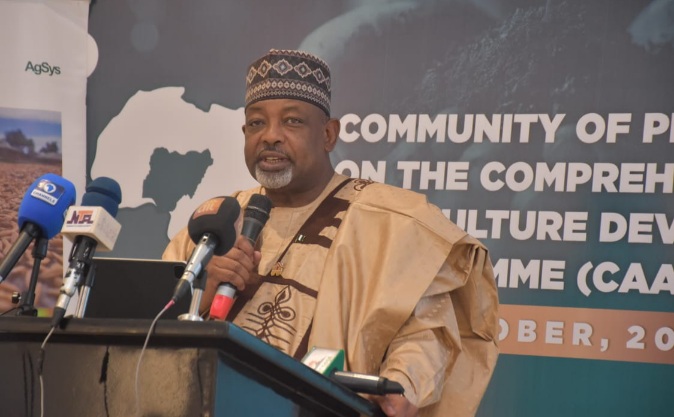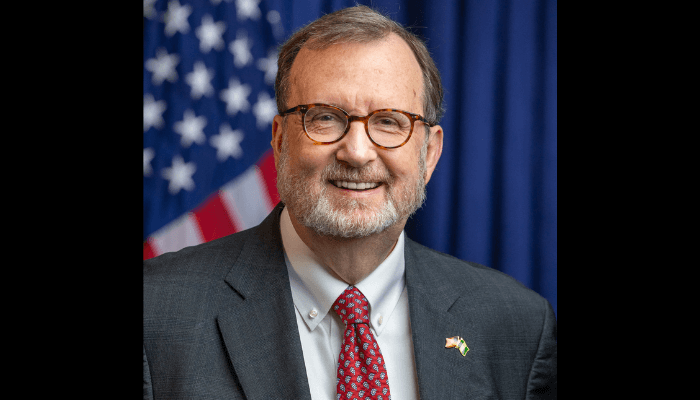Nigeria is positioning its agriculture sector for a decade-long transformation as it adopts the Kampala Declaration on Agriculture and Food Security (2026ŌĆō2036) ŌĆö a continental framework designed to drive sustainable food production, agro-industrialization, and regional trade growth.
Abubakar Kyari, minister of agriculture and food security, announced the development during the Community of Practice Summit on the Comprehensive Africa Agriculture Development Programme (CAADP), themed ŌĆ£From Kampala to Abuja: Transforming Agrifood Systems in Nigeria,ŌĆØ held in Abuja on Monday.
Kyari said the declaration would strengthen NigeriaŌĆÖs agrifood systems by promoting climate-smart innovations, enhancing value chains, and reducing post-harvest losses that currently cost the country over Ōé”3.5 trillion annually.
ŌĆ£We must move beyond business-as-usual approaches and embrace bold reforms that make our food systems more productive, resilient, inclusive, and sustainable,ŌĆØ the minister stated.
Kyari revealed that the Federal Government has already committed $538.05 million ŌĆö in partnership with private investors ŌĆö to establish Special Agro-Industrial Processing Zones (SAPZs) in Kaduna, Cross River, and Ogun States, with additional zones in the pipeline.
Read also: FG unveils rainfed wheat varieties to boost local production, cut import
The initiative, he said, is expected to attract up to $1 billion in additional private sector investment by 2027, while creating jobs, strengthening local manufacturing, and expanding export potential for agro-products.
ŌĆ£The SAPZs will serve as industrial hubs that promote value addition, enhance productivity, and boost farmersŌĆÖ income,ŌĆØ Kyari explained.
He also highlighted the Nigeria Postharvest Systems Transformation Programme (NiPHaST), a multi-stakeholder initiative aimed at minimizing storage losses, improving logistics, and optimizing value chains to enhance food security and profitability.
ŌĆ£Our investment drive will create a more efficient, sustainable, and equitable food system ŌĆö one that contributes directly to economic growth and livelihood improvement,ŌĆØ he said.
The minister emphasized the importance of collaboration between federal and state governments to maximize investment impact and ensure long-term sustainability.
ŌĆ£Synergy between all tiers of government is indispensable for achieving sustainable food security and the transformation envisioned by the Kampala Declaration,ŌĆØ Kyari said, urging state commissioners of agriculture and rural development to align with national priorities and CAADP frameworks.
He added that the ministry had established an Agricultural Sector Working Group to serve as a governance mechanism, bringing together research institutions, private sector players, and civil society organizations to scale up best practices, monitor progress, and ensure accountability.
Marcus Ogunbiyi, permanent secretary, to the ministry, said the CAADP framework has already delivered tangible outcomes across Africa by aligning national agricultural policies with regional priorities.
Read also:┬ĀNigeria needs bold investments, partnerships to feed growing population ŌĆō Olusanya
Also speaking, Karen Yansen, head of German Cooperation, described the Kampala Declaration as ŌĆ£an evidence-based and inclusive framework that strengthens governance and promotes equity across AfricaŌĆÖs food systems.ŌĆØ
The summit brought together representatives from the Ministry of Livestock Development, German Development Cooperation (GIZ), International Fund for Agricultural Development (IFAD), and State Commissioners of Agriculture, Livestock, and Fisheries to explore strategies for scaling up investments in NigeriaŌĆÖs agricultural sector.
With the new commitments under the Kampala Declaration, Nigeria aims to reposition agriculture as a key driver of industrialization, job creation, and export diversification, strengthening its food system and contributing to AfricaŌĆÖs broader economic transformation agenda.











